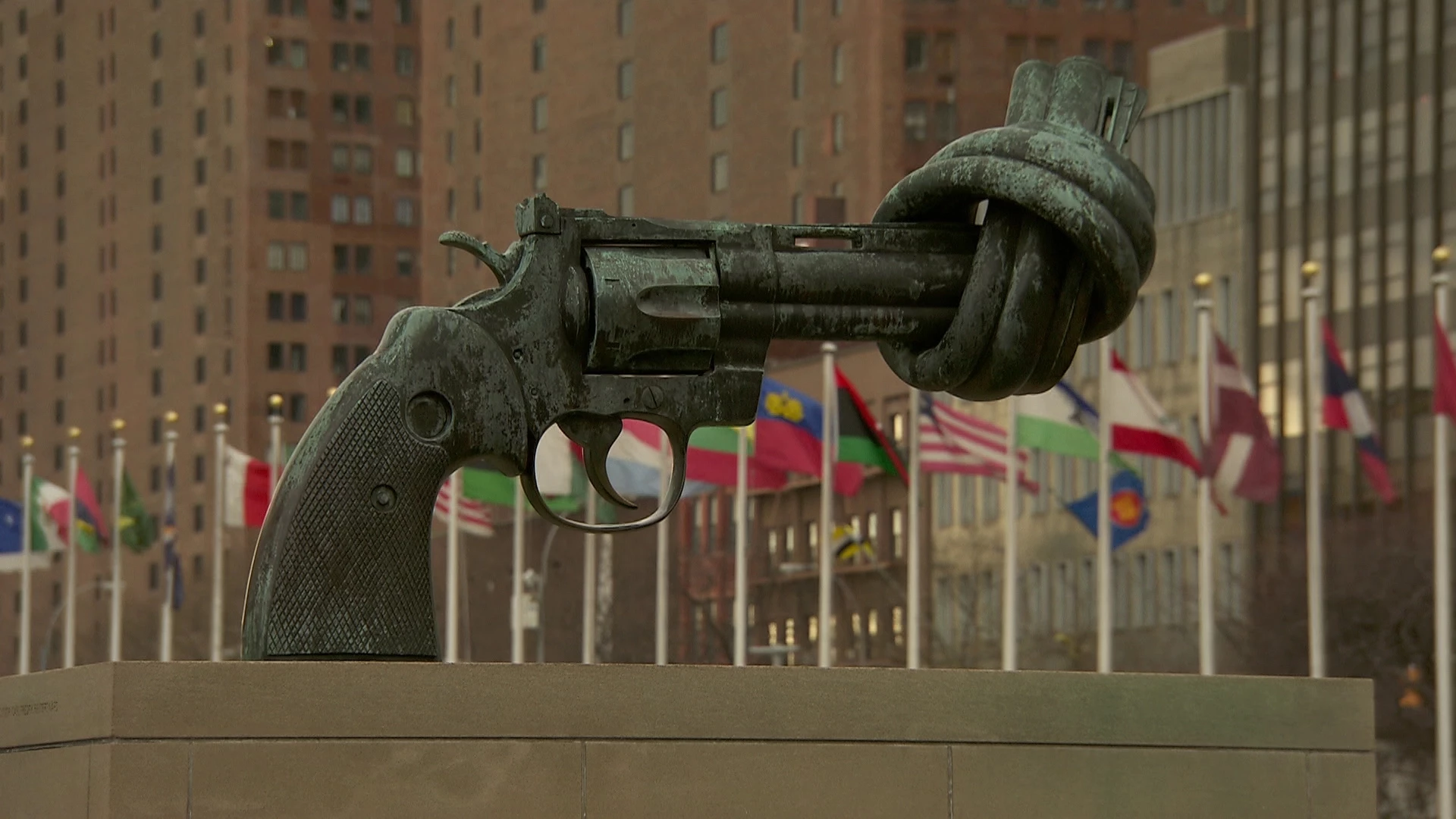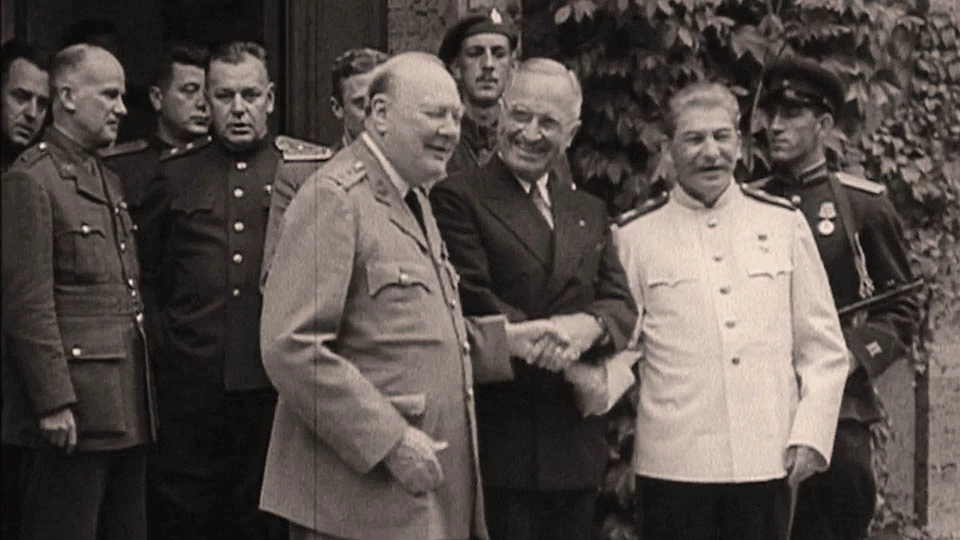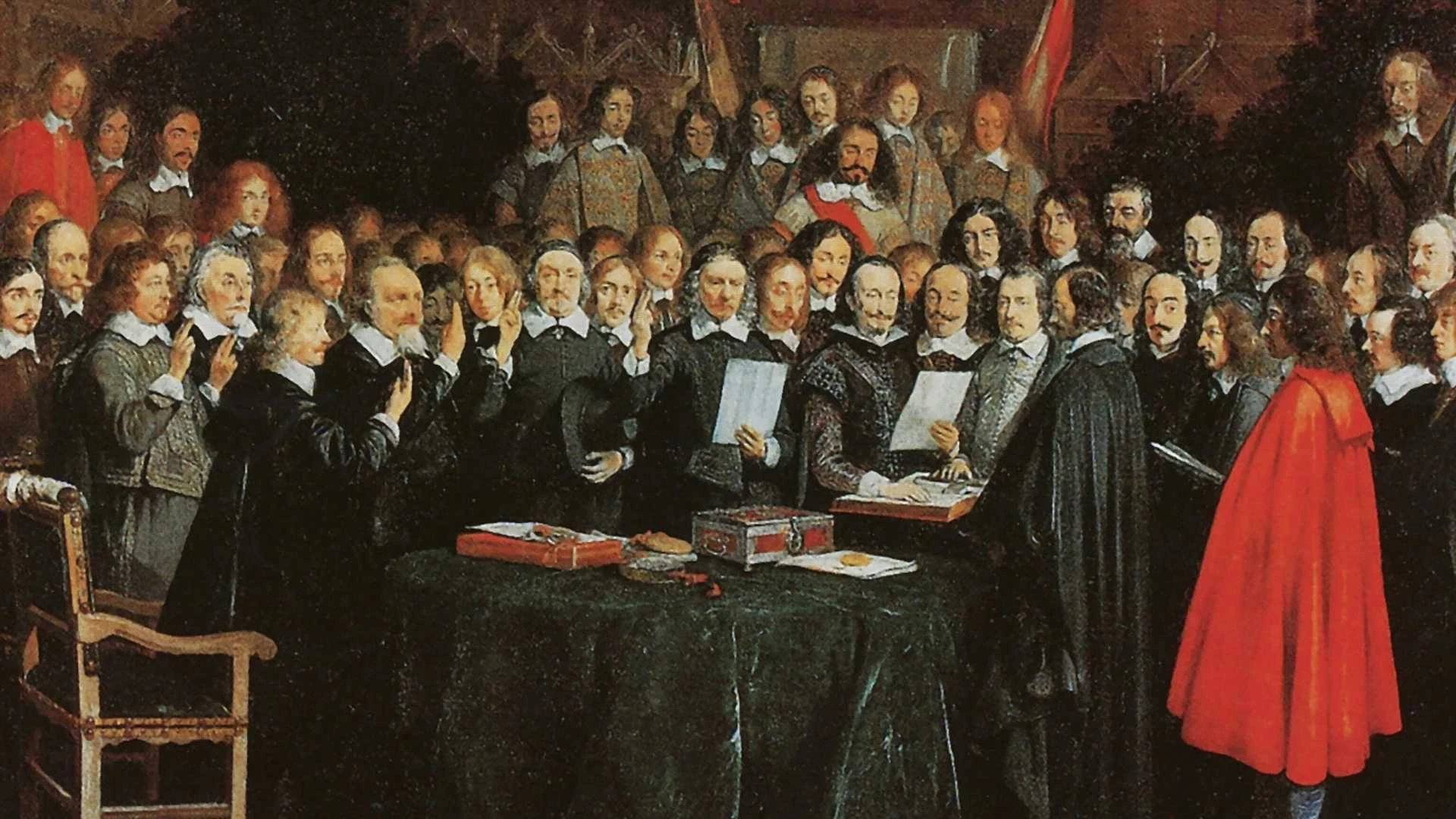Längsschnitt: Frieden
Peace – Definition and Basic Concepts
What is peace? This question occupies the minds of many philosophers throughout history. One of them is Immanuel Kant, who writes in his essay "Perpetual Peace" in 1795: "A state of peace among men who live side by side is not the natural state ... Thus the state of peace must be established." A process that continues to challenge politics and society until today. For peace is more than just the absence of war. As a civilisational concept, it is not only the state of secure coexistence between countries and within societies, but a process that is directed against violence, lack of freedom and social injustice. | In this film version, German interviews and historical or literary quotes remain untranslated.
mehr
weniger
society, societies, community, communities, peoples, nations, cultures, living together, coexistence, understanding, negotiations, order of states, Peace of Westphalia, warring parties, compromises, sovereignty, forgive and forget, First World War, World War One, World War I, Allies, armistice negotiations, peace negotiations, Germany, Germans, France, French, losers, winner powers, victorious powers, peace terms, peace treaty, Second World War, World War Two, World War 2, unconditional surrender, peacekeeping, nationalism, forced peace, victors, Nuremberg, Nazi regime, leadership elite international military tribunal, trial of war crimes, Crimes Against Humanity, UN, International Criminal Court, Yugoslavia, The Hague, International Criminal Tribunal, asymmetric wars, terror, warmongers, warlords, civil wars, peace processes, stabilisation, politics, economy, ethical principles
Geeignet für die Fächer:
Geschichte
Politik


